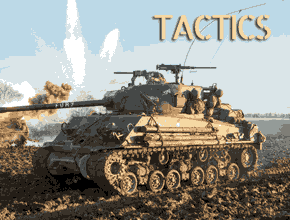Genesis
The K200 was part of a program aimed at upgrading South Korean ground forces capabilities and modernize its fleet of AFVs but also to make good use of the local industries. The staple of the South Korean motorized units since 1970 was the M113 APC. In 1981 came a request for a new Korean Infantry Fighting Vehicle (KIFV). The Agency for Defense Development was put in charge, with Daewoo Heavy Industries integrated into the loop since the beginning (now Doosan Group). The KIFV had to be able to cross shallow rivers and use the AIFV chassis, a large family of APC/IFVs developed from the M113. It was to be also cheaper than the AIFV but much more effective than the M113. Given its main armament, the KIFV could barely be called an IFV, only differing from the previous M113 only on the standpoint of protection and superior capabilities. Eventually, the prototype was approved in 1985 and mass production began next year, until 2006. Its modern replacement is the K21, a "true" IFV.Design
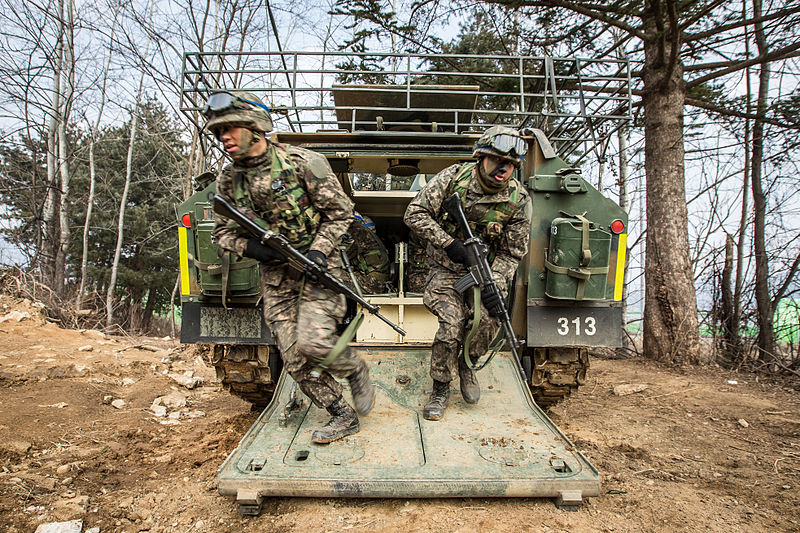
Daewoo's KIFV resembled a mix between an M113 and an AIFV. In fact, it uses the same hull and additional protection of the latter, but omit the main armament with a turret and 20 mm autocannon (or ATGMs). That way, the KIFV is more an upgraded M113, therefore less costly than the AIFV (programs costs would have resulted in a $1.7-2.8 million vehicle instead of the final $1.32-$1.41 million of the K200). The hull was still roomy, for up to nine infantry and their equipment, with a rear sloped section, storage baskets, additional add-on spaced laminate steel armor (bolted) on each side (reinforced aluminum).
Protection against 12.7 mm rounds is assured on the front, sides and lighter MG rounds on the rear, but also light anti-personal mines blasts. The engine is located in the front right, protected by a bulkhead. This MAN D2848T engine coupled to an Allison Transmission X200-5K gearbox were produced under license. The compartment was secured by a fire extinguishing system. The chassis and drivetrain however, complete with tracks, torsion bars, idler, sprockets and roadwheels, were left unchanged. For amphibious operations, the air inlet, air outlet louvres and the exhaust pipe are located on the roof whereas the vehicle thanks to its light construction had a positive buoyancy. The K200 can climb a 60% Gradient and 68 cm step, 30% side slope, or gap a 1.68 meter ditch.
Fuel Tank Capacity is 400 liter (105 gallons) for 480 kilometers (298 miles) of autonomy. The armament of the K200 comprises a 12.7mm (cal.50) M2HB heavy machine gun in an ACAV style protected turret-shield arrangement, and a single secondary 7.62mm machine gun on a pintle mount at the rear. In addition, it carried six electrically operated smoke grenade launchers, mounted across the front of the hull, blinding electro-optical devices and infrared sights. A man-held TOW or more commonly Metis-M anti-tank missile system could be mounted instead of the rear LMG, and special variants could carry heavier armament like the SPAAG version K263 (20 mm multitube Vulcan), and mortar carriers (see below).
Evolution
The K200A1 was the upgraded variant, given a more powerful engine and modernized transmission. This was also the first to have a full collective NBC protection and fully automatic fire extinguishing system in the engine and crew compartments. In 1990, the KAFV was to be a radical upgrade with heavier armaments, a 20 mm autocannon turret and even a 90 mm low-pressure Belgian Cockerill gun and turret. These were tested but the program was eventually canceled in the 1990s.Variants
K216: NBC reconnaissance vehicle, equipped with ambient and soil detection systems, analysis and signal.K221: Smoke generating vehicle, producing enough concealment to last from 30 minutes to 90 minutes.
K242: Mortar carrier, with a 4.2 inch ( mm) mortar.
K263 Cheongoong: Equivalent of the US-built KM167A1 with a 20 mm multitube Vulkan anti-aircraft gun. It was replaced by the modernized K263A1 Cheongoong, and the K263A3 Cheongoong featuring an improved FCS, and other improvements in electronics and safety. This was the new standard.
K277: Command post vehicle, with a modified rear section, additional equipment map table, SATCOM and radios.
K281/K281A1: 81 mm mortar carrier.
K288/K288A1: Recovery vehicles.
K255: Proposed variant was an ammunition resupply vehicle (to serve the 155 mm self-propelled howitzer).
Service & operators
South Korea
So far from 2,383 to 3,184 (*deagel.com) vehicles has been built for the domestic market, part of which were exported to Malaysia. Unit price was $1.41 million. The K200 began to replace the M113 completely in 1990 until 2006 and was declined into variants previously assumed by the M113, like the SPAAG 20 mm Vulkan version, mortar carrier, Command post, ARV among others.Malaysia
111 K200A1 were exported to Malaysia at a unit price of $1.32 million in the early 1990s.Links
The K200 on wikipediaThe K200 on Army-guide
The K200 on weaponsystems.net Additional photos
K200 specifications |
|
| Dimensions | 5.49 x2.85 x2.52 m (17 x9.3 x8.2 ft) |
| Total weight, battle ready | 13.2 tons (26,400 ibs) |
| Crew | 3+9 (Driver, Cdr, gunner, infantry) |
| Propulsion | Doosan D2848T diesel 350 hp (261 kW) |
| Suspension | Torsion bars |
| Top speed/water | 70 km/h/6 kph) (44/3.7 mph) |
| Range | 320 km (200 mi) |
| Armament | cal.50 (12.7 mm) M2HB HMG - see notes |
| Armor | 12 mm sides to 30 mm front (0.24-0.35 in) |
| Total production | 2400+ in 2006 |
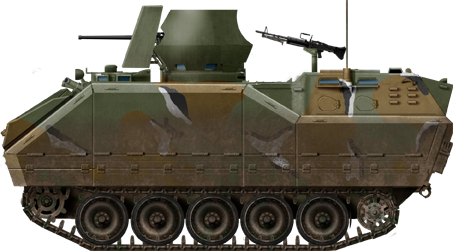
K200 KIFV, 1988.
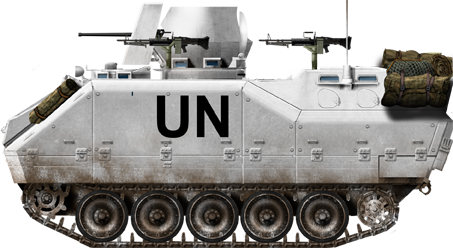
K200A1 KIFV in UN colors, 2000s
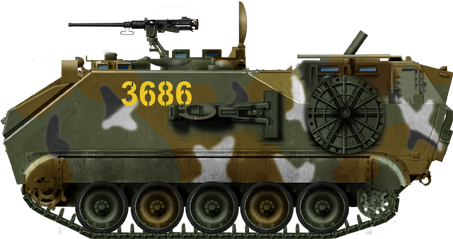
K242 mortar carrier
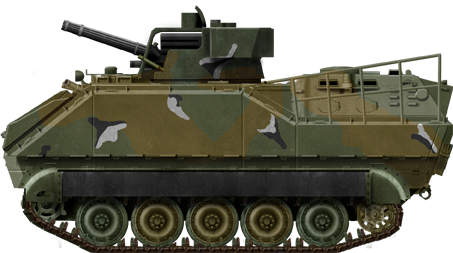
K263 Cheongoong SPAAG
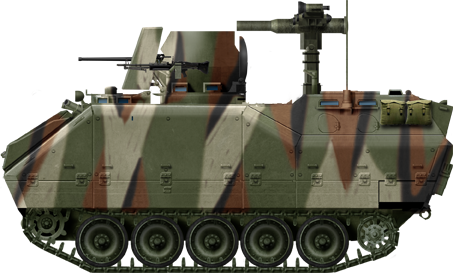
Malaysian K200 IFV
Gallery
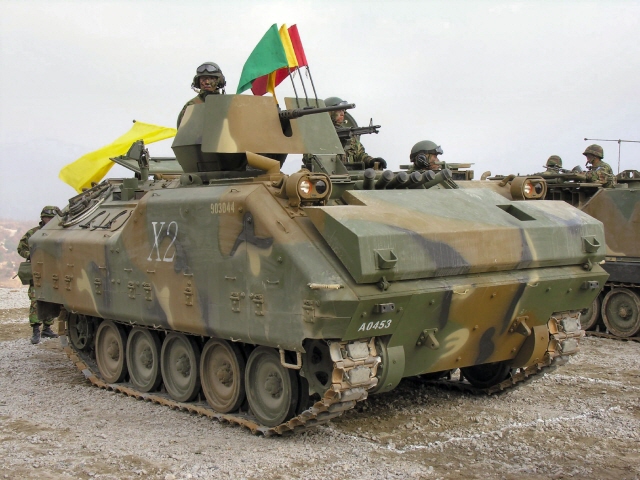
K200A1 in exercises

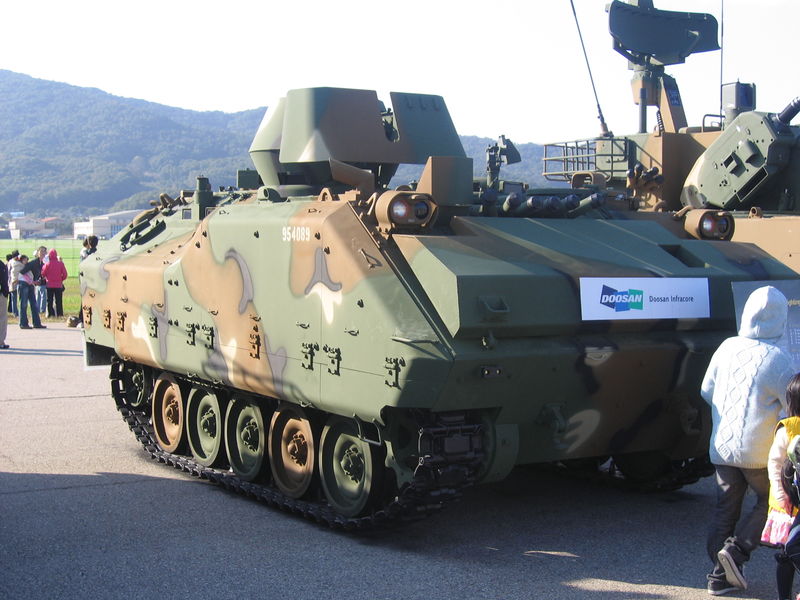
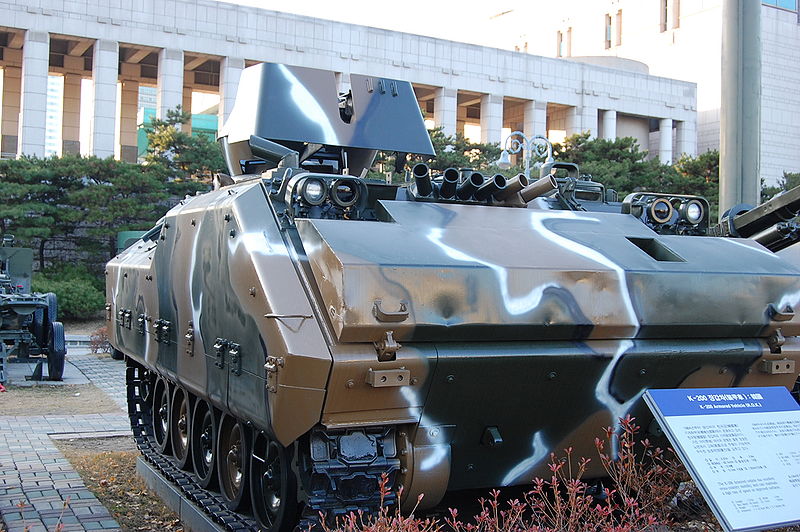
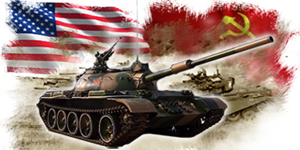
Cold War Tanks


































Cold war tanks posters

Cold War Main Battle Tanks
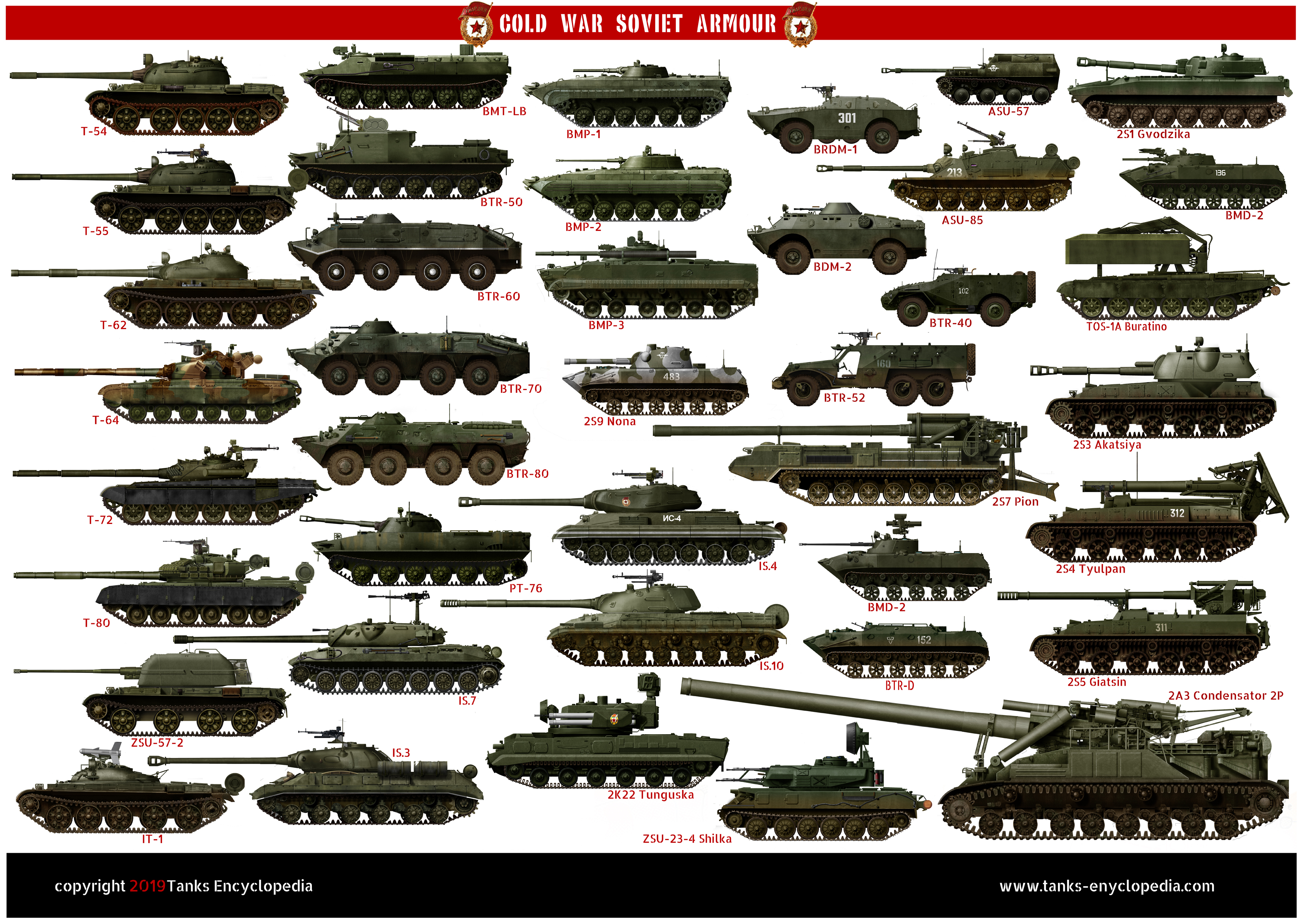
Cold War Soviet Army
Museums, Movies, Books & Games
The Tanks and Armor in pop culture
Tanks and armored vehicles in general are only really grasped when seen first person: The mass, the scale, it's all there. Explore also the way tanks were covered in the movie industry, in books and in video games.Movies:
Best tanks movie on warhistoryonline.com
On imdb.com
On bestsimilar.com/
miltours.com
liveabout.com/
watchmojo.com
Video Games:
pcgamesn.com
historyhit.com
levvvel.com
vg247.com/best-tank-games
mmobomb.com/
alienwarearena.com
